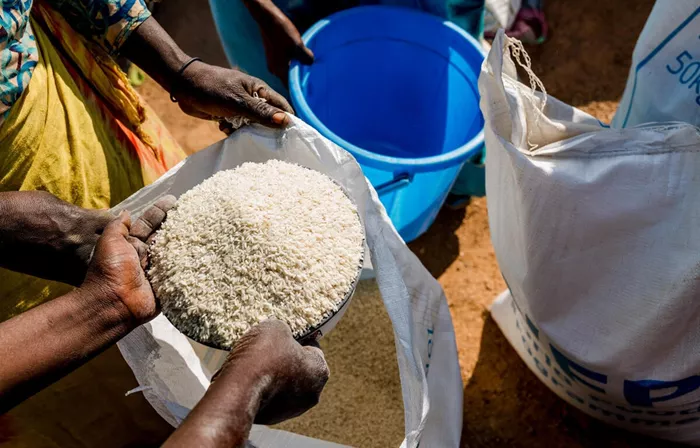A recent paper in The American Journal of Clinical Nutrition warns that hypothetical U.S. policy shifts—namely, withdrawal from the World Health Organization (WHO) and dismantling of the United States Agency for International Development (USAID)—could severely destabilize the global nutrition and health system. The authors argue that these moves would disrupt emergency aid, cost thousands of jobs, and increase hunger and disease globally. They call instead for reform, not withdrawal.
1. U.S. Role in Global Aid Under Threat
The U.S. has long been a cornerstone of global humanitarian relief, especially through USAID, which delivers food and health services to vulnerable populations across Africa, Asia, and South America. The WHO, backed by significant U.S. funding, has played a key role in setting international health standards and responding to crises.
The paper outlines a scenario in which President Donald J. Trump, following his inauguration on January 20, 2025, issues an executive order to exit the WHO, effective one year later. Soon after, presidential advisor Elon Musk announces USAID’s closure via social media, labeling it a “criminal organization.” The hypothetical policy package also includes a 90-day freeze on all foreign assistance, paralyzing international aid distribution.
2. USAID and WHO: Vital Lifelines
USAID, established in 1961, supports health, disaster relief, and development programs worldwide. It manages civilian foreign aid, directs food distribution, and operates key health data systems in over 20 countries. The WHO, created in 1948, is the central global body for health coordination, disease control, and nutrition support.
Without these institutions, the paper warns, nutritional and medical relief would collapse in many regions. Nearly half of emergency food aid worldwide is funded by the U.S., primarily through USAID.
3. Policy Driven by Cost, Consequences Ignored
The Trump administration’s cited motivation is cost-saving. However, the paper notes that USAID and WHO funding represents less than 1% of U.S. GDP. In contrast, defense spending far exceeds these humanitarian investments.
The proposed foreign aid freeze would directly impact 10,000 USAID staff and an additional 5,000 partners, many of whom are American workers. Disruptions would reach into schools and communities, leading to widespread social and economic fallout.
4. Devastating Global Impacts
The projected humanitarian toll is dire. In Nigeria’s Sokoto region, the closure of USAID-supported feeding centers would leave thousands of children at risk of starvation. In Sudan and Somalia, millions of displaced children face severe acute malnutrition (SAM). Without treatment, SAM has a fatality rate of up to 60%. Treatment, however, saves nearly 95% of cases.
The paper highlights that USAID’s dismantling would compromise support systems for SAM and other critical health issues. The U.S. provided $7.2 billion to WHO and the World Food Programme (WFP) in 2022—support that would vanish under the proposed changes. A pause in funding for PEPFAR, the U.S. HIV/AIDS program, could result in 370,000 additional deaths alone.
5. Collapse of Health Infrastructure and Research
Beyond immediate humanitarian effects, the paper warns of systemic damage to global health infrastructure. Disrupted programs would include:
Feed the Future (FTF) – Focused on food security.
Demographic and Health Surveys (DHS) – Crucial for policy and research.
Famine Early Warning Systems Network (FEWS NET) – Monitors food crisis risks.
These losses would stall scientific progress, hinder pandemic response readiness, and damage global disease monitoring.
6. Erosion of U.S. Global Standing
Authors argue that beyond human suffering, these policies would severely damage the United States’ international reputation. Long-standing allies and partner nations would see the U.S. as an unreliable contributor to global welfare. This, the paper contends, weakens American influence and soft power.
Calls are growing for diversified, independent funding networks to reduce global reliance on any single donor nation. Equitable collaboration and inclusive governance in international health policy are increasingly seen as essential.
7. Recommendations for Prevention
The paper concludes by urging immediate reversal of the WHO withdrawal order and the reinstatement of congressionally approved foreign assistance. It also calls for the restoration of USAID’s global research, data, and development programs.
Rather than eliminating USAID, the authors recommend reform to improve transparency and effectiveness. Global health scientists and humanitarian advocates are encouraged to unite in resisting these policy shifts and to champion sustainable international partnerships.
Conclusion
The projected dismantling of USAID and U.S. withdrawal from the WHO could devastate the global nutrition and health landscape. With millions of lives at stake, experts stress that these actions, if enacted, would undermine decades of progress in combating hunger, disease, and poverty worldwide. Reform—not retreat—remains the urgent call.
YOU MAY ALSO LIKE:
- New Report Spurs FDA Review of Abortion Pill Amid Scientific Backlash
- Pope Leo XIV’s Fitness Routine: How the Pontiff Stays Strong
- Men Cause 26% More Emissions Due to Meat and Car Use, Study Finds


